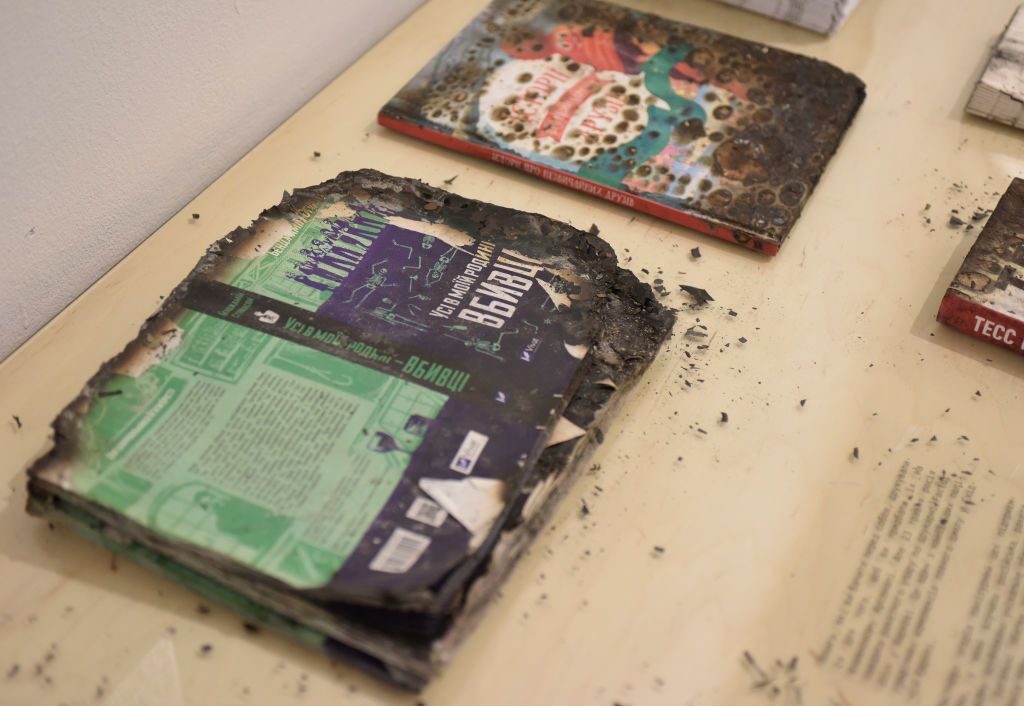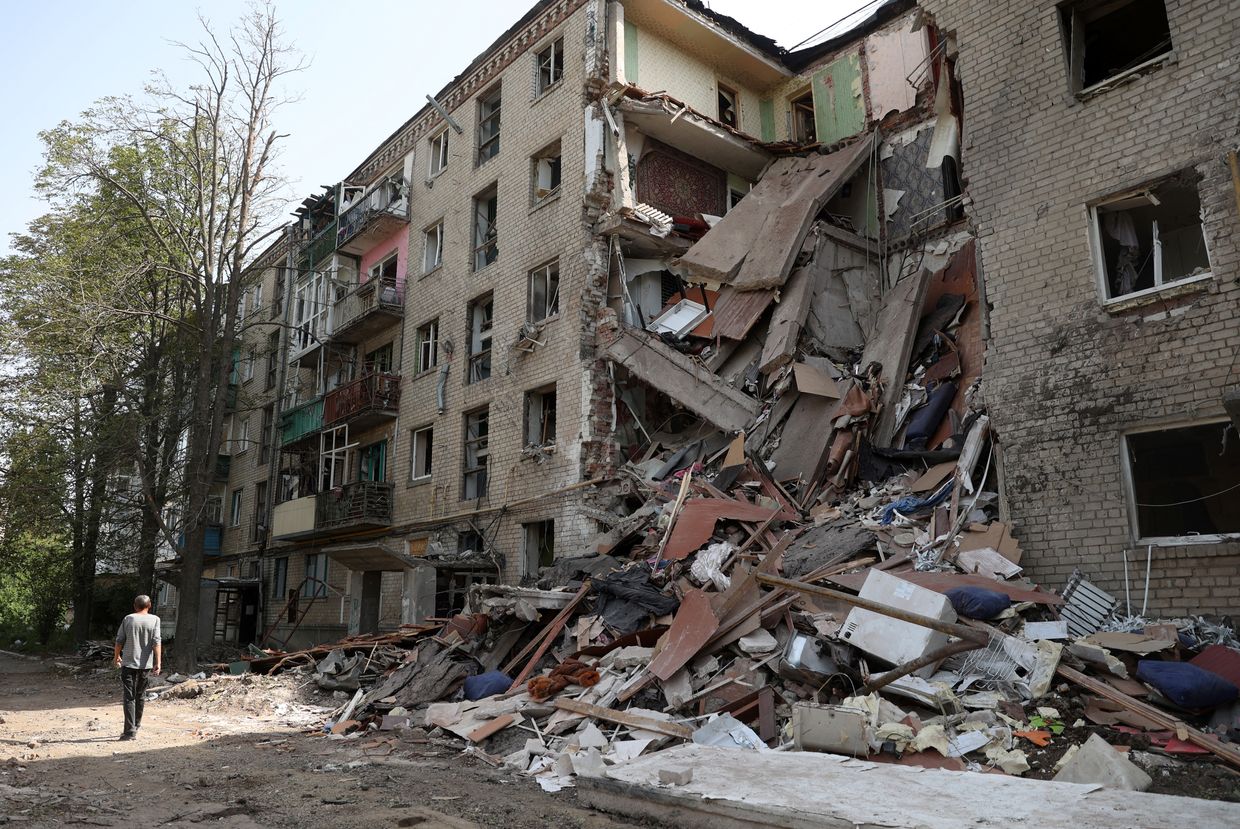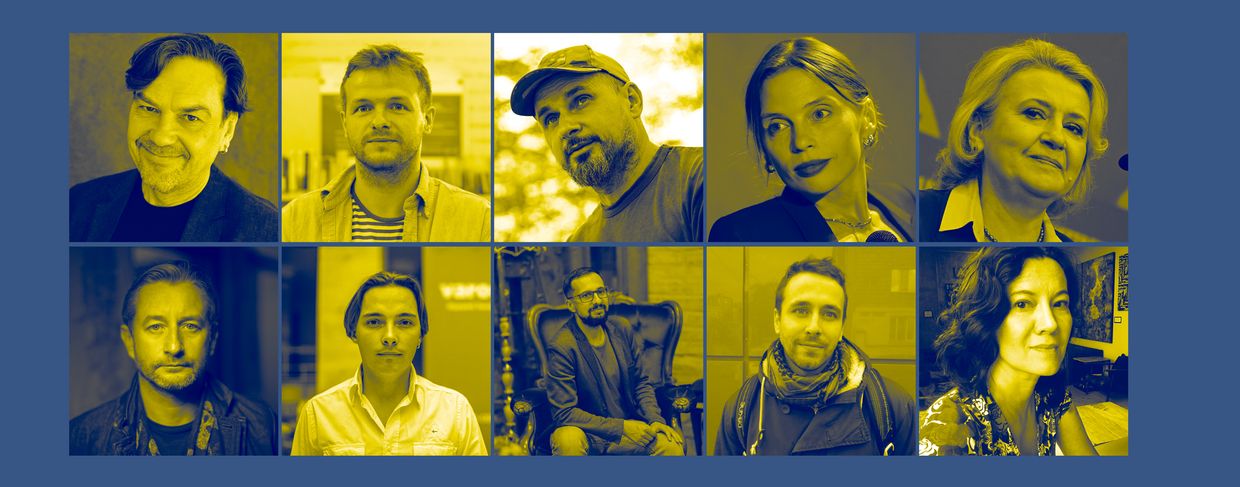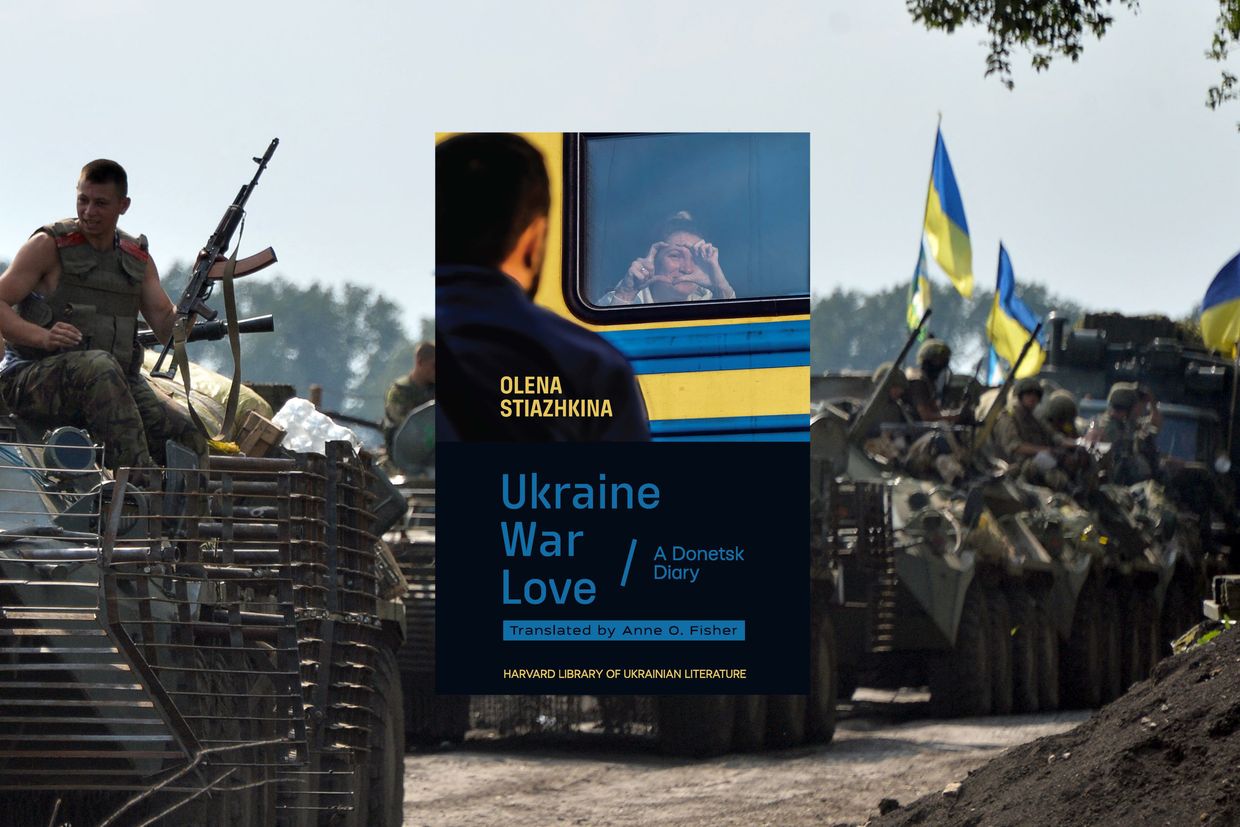Ukrainians find solace, identity in books amid Russia’s war
Despite Russia’s ongoing war against Ukraine, the country’s publishing houses report increased sales, while dozens of new bookstores have opened in Ukrainian cities.

Visitors attend the opening of the new bookstore ‘Sens’ on Khreshchatyk Street on Feb. 16, 2024, in Kyiv, Ukraine. (Dmytro Larin/Global Images Ukraine via Getty Images)
In downtown Kyiv, trendy bookstore cafes are bustling with people enjoying coffee, reading, working on laptops, or socializing. Remarkably, many of these establishments, such as the 1,500-square-meter Sens bookstore on Kyiv's main street, Khreshchatyk, have emerged only recently – despite Russia’s full-scale invasion of Ukraine.
Oleksii Erinchak, the owner of Sens, explains that after reopening his first bookstore following the initial shock of the invasion, he decided to launch a larger one. His goal was to offer a wider selection of books and demonstrate that "culture and books are timely and important."
Many Ukrainians agree, turning to books to try to understand the reasons for Russia's war or to distract themselves from its daily horrors. According to an August 2023 survey by polling company Info Sapiens, 16% of Ukrainians in Ukraine-controlled areas read or listen to books daily, which is double the figure from 2020.
Ukrainian publishers and large bookstore chains report increased book sales, noting unprecedented sales of books by Ukrainian authors, which are now topping the sales charts.
Introducing official
merch from the Kyiv Independent
Despite an unstable market and challenges such as staff shortages due to mobilization and Russian attacks on printing facilities, books remain vital for safeguarding Ukrainian culture and identity.
In search of meaning and sense of safety
The full-scale Russian invasion of Ukraine on Feb. 24, 2022, initially paralyzed the Ukrainian book industry as people prioritized survival.
But within a month, book sales resumed. And not just any books: As Ukrainians realized that their country would fight on and that the war would continue, books on Ukrainian and world history, as well as Ukrainian classics, grew extremely popular, several publishing houses and bookstores told the Kyiv Independent.
Natalka Kuzmenko, the founder of a non-fiction-only bookstore in Kyiv, thinks the rise in book sales is driven by a search for understanding: "I think people are looking for answers," she says. "Why did the war start? What is Ukraine? What is its history, art, and culture? Why did we all end up where we are now, and what are we to do next?"
For some, buying books soothes anxiety and brings confidence in the future, says Kateryna Ivanova, who owns a bookstore in Lviv. Her business began to thrive almost immediately after the invasion, as thousands of Ukrainians evacuated to the city from eastern areas that had been invaded or were threatened by Russian occupation.
"The moment you buy a book, you feel safe," Ivanova said in a podcast. "You’re doing something aimed at the future, which means that you (think you) will have a future – as much future as you need to read all those wonderful books that you are buying now."

"Despite rising book prices and financial constraints, people turned to books for self-care," says Bohdana Neborak, a Ukrainian journalist and former head of the Ukrainian Book Institute’s translated literature department.
She told the Kyiv Independent that books and reading are also important to retain a sense of dignity. "They allow you to devote time to yourself and your imagination, spend time with yourself, and then discuss what you read with loved ones," Neborak says.
Meanwhile, Ukrainians who fled abroad continue ordering Ukrainian books to maintain ties to home, although such orders decreased last year as Ukrainian refugees, including children, began to assimilate and read in foreign languages, says Oleksandr Krasovytskyi, the head of Folio publishing house.
In the second half of 2023, interest in history books and other non-fiction waned as the brutal war dragged on and Russia gained the initiative on the battlefield. People turned to fantasy, detective stories, and romance novels, likely seeking an escape from reality, according to Krasovytskyi.
The long autumn-winter 2022-2023 blackouts in Ukrainian cities due to Russia’s attacks against the energy grid further encouraged reading due to limited TV and Internet access.
Derussification of the book market
A major catalyst for the rise in Ukrainian book sales has been the disappearance of Russian books, which once dominated the market.
This shift has spurred demand for homegrown publications, experts told the Kyiv Independent. It was helped by restrictions imposed on Russian books in 2016, which were followed by a total ban after the full-scale Russian invasion.
"For every Ukrainian book, there were nine or even more Russian books sold in Ukraine, and the money from them went to Russia," says Illia Stronhovskyi, co-founder of the niche Ukrainian publishing house Vydavnytstvo, describing the previous "Russian occupation" of the Ukrainian book market.

Liliia Omelianenko, Stronhovskyi’s business partner, also notes that demand for Ukrainian books is at unprecedented levels since the invasion.
"As soon as this flow of Russian books stopped, people began to buy Ukrainian books much more," Omelianenko says. "This demand is growing, and as of now, it has reached a point never seen before the full-scale war."
Book industry hurt, but resilient
Despite the increased popularity of Ukrainian books, the country’s publishing industry, like most other sectors, has suffered greatly from the effects of Russia's war.
Krasovytskyi, whose publishing house – one of the largest in Ukraine – produced one-and-a-half times more books in 2023 than in 2019, said that the market was growing until the end of 2023 but started to decline monthly early this year before stabilizing in June. He said one of the key reasons for the decline were the regular Russian attacks on Kharkiv, where most Ukrainian printing facilities are located, as well as personnel shortages due to mobilization.
Erinchak also highlights a reduction in the industry workforce due to the war, and fewer new independent market players. New bookstores are mainly opening in Kyiv and western Ukraine, with few in the riskier east and south, he says.
In smaller towns near the front lines, residents rely on local libraries for books. But these libraries' collections are not being replenished due to the state budget being redirected towards military spending, says Sofia Cheliak, the program director of Lviv BookForum. Additionally, hundreds of Ukrainian libraries have been destroyed or damaged by Russian attacks.
Nevertheless, "people there still read," says Cheliak, who visited a front-line village in Zaporizhzhia Oblast in the summer of 2023 with PEN Ukraine to deliver books to the local library. "The librarian said: 'Well, people are afraid to go out, so I get on my bike, they write to me what books they want, and I bring the books to them.'"
A cultural weapon
Amid Russia’s intent to erase Ukrainian identity and culture, reading has become a form of resistance to the aggressor.
"We have to develop 10 times faster than the enemy in all spheres, and books are one of the most effective tools for obtaining information," said Kuzmenko, who opened her Zbirka bookshop in Kyiv after serving in the military for over a year and a half.
"In Ukraine, we have a 10-year war that has (actually) been going on for centuries. We must know our past, be able to critically perceive reality, and plan for the future," she says.
Erinchak also sees book spaces as vital for reinforcing Ukrainian culture and preserving its integrity in the face of Russian aggression.
"Sooner or later, the Russians will return and try to influence our cultural sphere," Erinchak says. "The stronger we make Ukrainian culture, Ukrainian books, and Ukrainian identity, the better we will be prepared for (future) confrontations."
Neborak, who moderates book club meetings in Kyiv, also emphasizes the importance of cultural engagement. Between working, caring for their families, and contributing to Ukraine's fight against Russia, people just want to "live fully, despite the war," she says. "The consumption of culture gives this sense of living fully."
"We now see how reading can create and sustain communities – and this is terribly important, especially in the fragile and vulnerable times of war."

Note from the author:
Hi everyone, it's Dinara Khalilova. I hope you enjoyed reading this piece because I greatly enjoyed writing it as it covers one of my favorite topics — Ukrainians exploring themselves and resisting any attempts to destroy their identity. If you want to see more stories about Ukrainian wartime culture, please consider becoming a member of the Kyiv Independent community. We need your support!
























